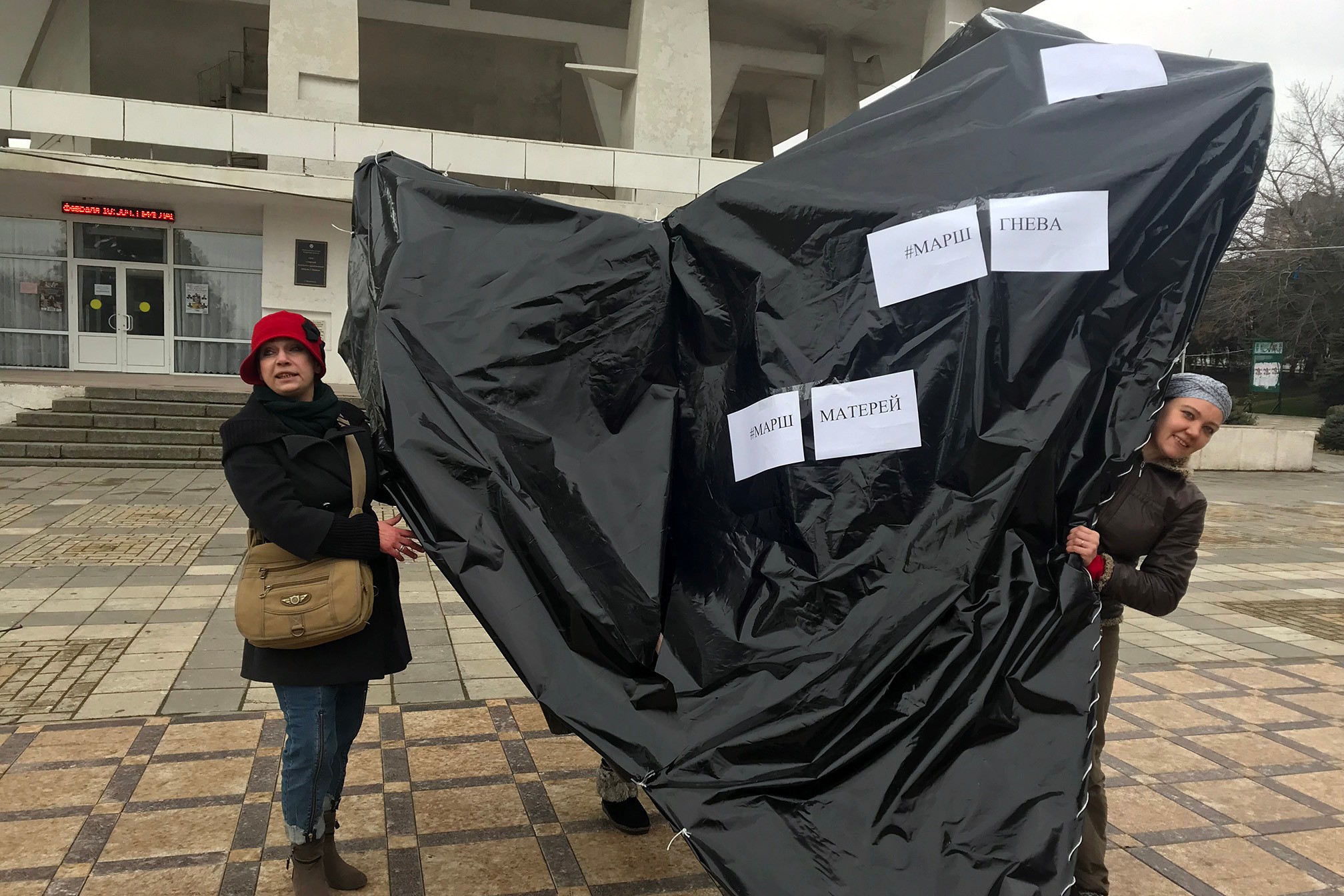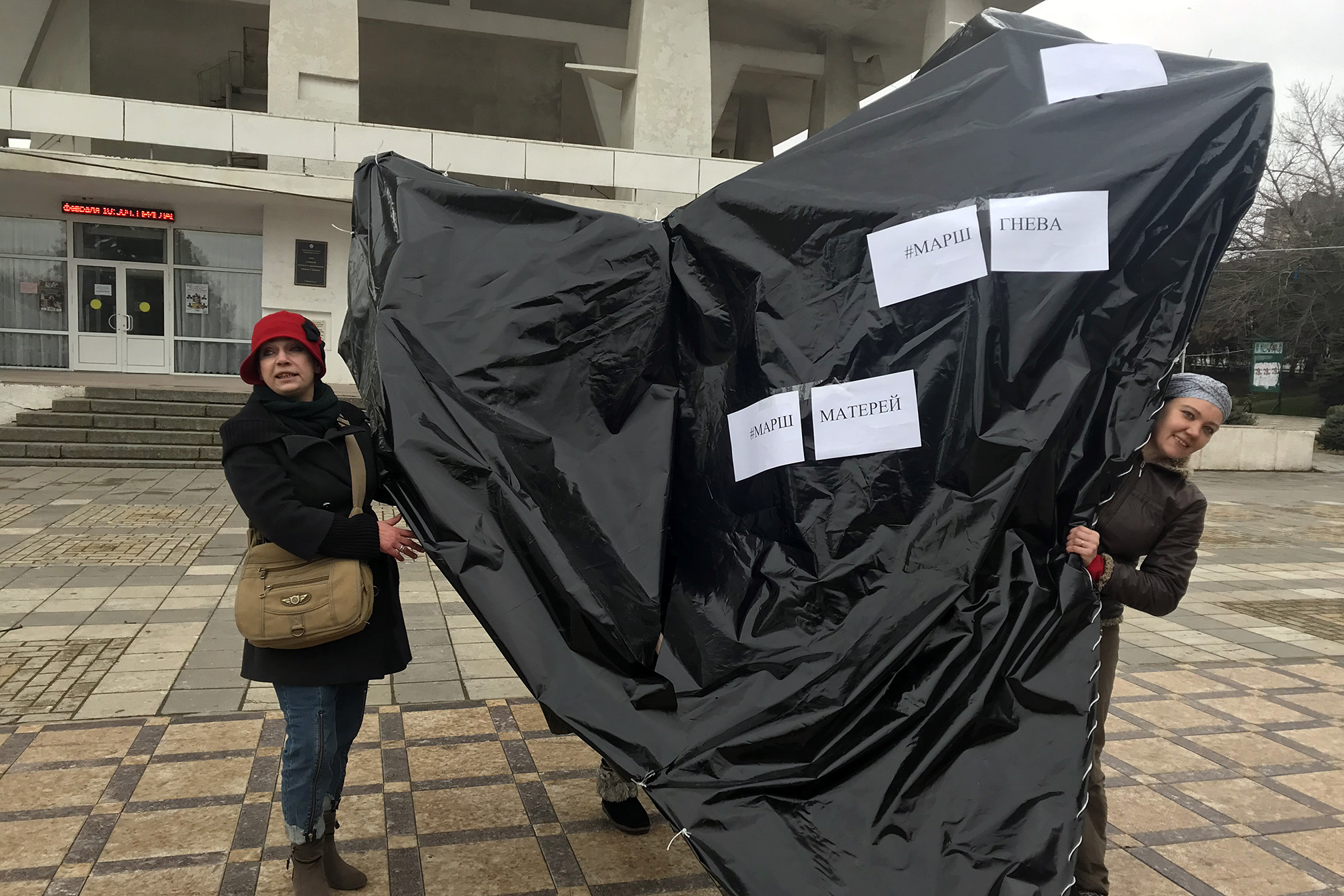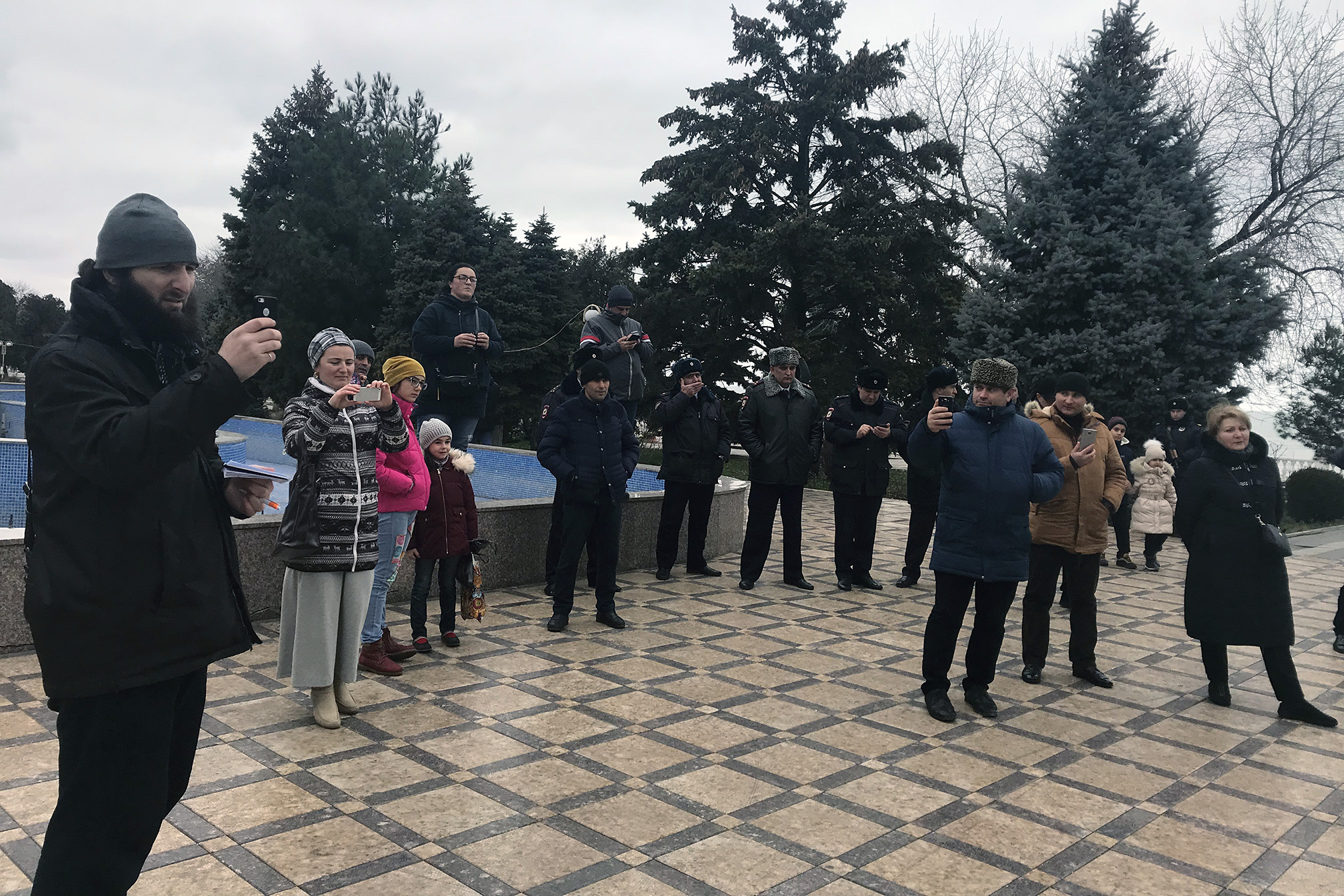

Authorities in the Russian Republic of Daghestan have prohibited a rally in support of Anastasia Shevchenko, a Russian human rights activist under house arrest who was denied the right to see her dying daughter.
Nine people were detained in Moscow and Saint Petersburg on 10 February’s unsanctioned ‘March of Maternal Anger’ rallies, RFE/RL reported.
The protests were announced after news emerged that Shevchenko, an activist from rights group Open Russia who is currently facing charges under a 2015 law against ‘undesirable organisations’, was not given permission to visit her ailing 19-year-old daughter, who later died in hospital.
Natalia Zakharova, a resident of the Daghestani capital, Makhachkala, held a single-person picket on 10 February, after she was denied the right to hold a larger rally by the local authorities.
Zakharova told OC Media that on 7 February, she officially notified the Makhachkala city administration that a rally of up to 100 people was planned in front of the city’s Avar Theatre.
‘The answer came the next day from the mayor’s office of Makhachkala that this action was illegal. However, according to the law, meetings of up to 100 people do not require the agreement of city authorities’, Zakharova said.
‘Organisers must only notify the authorities about the planned event three days in advance. That is, the administration does not have the right to either allow or prohibit this action from being conducted’.
According to Zakharova, an hour before the beginning of the march, police officers came to her home, but she was not there.
‘The children were alone at home. The police knocked and demanded that I come out. The frightened children called me and I heard how they pounded on the door’.
Zakharova said that by the time she arrived back home, the police had already gone.
‘For me, this was another reason to go to the rally and oppose such an attitude towards mothers and children’, Zakharova said.
According to her, the deputy head of the Makhachkala Department of Internal Affairs, Shamil Omarov, then called her to inform her the planned march was unauthorised.
She said that Omarov told her the administration had been instructed to counter the ‘March of Maternal Anger’.
Zakharova said that during her single-person picket, Omarov informed her that the police had the right to come to her house because it was a part of their job.
Omarov declined to comment and said he was only present at the picket in order to maintain public order.
Magomed Abdurashidov, a senior official in the Makhachkala mayor’s office, also attended the picket. He told those present that the event was unauthorised and had not been coordinated with the Mayor’s Office and that people could not gather there.
‘I didn’t want to provoke the police to use force’
Zakharova told OC Media that because of the crackdown by Daghestani authorities, she did not ask people to support her rally but decided instead to organise a single-person picket, which police do not have the right to prevent.
She said she did not want to provoke the police and cause them to use force or detain participants of the action.
Police officers and employees of the city administration filmed Zakharova’s picket in front of the Avar Theatre from beginning to end.
Several passers-by stopped and asked Zakharova what the action was about, with some expressing their support.

Zakharova said that the picket was dedicated not only to Shevchenko but to others who have faced injustice in Russia, naming unsolved killing of two teenage shepherds in 2016.
[Read more on OC Media: Parents protest teen shepherds’ murders in Daghestan]
‘What is happening in our society? One cannot remain indifferent to this, one must be more humane, more kind, and be more attentive to those who need help’, she said.
Daghestan was the only republic in the North Caucasus where a rally was organised.
An activist from the Gorodnash public movement, Arsen Magomedov, told OC Media that the rally was legal and that he came to support Zakharova after seeing information about the ‘March of Maternal Anger’ on social media.
‘The Makhachkala mayor’s office and the police pretend they don’t know the laws’, Magomedov said.
He said there had been several incidences in which organisers of protests had successfully challenged the mayor’s office for banning protests of less than 100 people.
Khadizhat Akhmedkhanova, a resident of Makhachkala, said she found out about the ‘March of Maternal Anger’ from local media only after it was already over.
Akhmedkhanova told OC Media that had she known about it earlier, she would have come to support the march despite the city’s ban, because every mother has her own difficult situation which the local authorities should hear about.
‘Undesirable Open Russia’
An activist from Rostov-on-Don, Anastasia Shevchenko was the first person arrested under Article 284.1 of the Russian Criminal Code.
The law means those charged with carrying out activities on behalf of a foreign or international organisation that has been recognised as ‘undesirable in the Russian Federation’ faces up to six years in prison.
On 23 January, a court in Rostov-on-Don placed Shevchenko under house arrest. On 31 January, her daughter died in hospital from complications due to obstructive bronchitis; Shevchenko was not allowed to see her before her death.
Open Russia, which promotes democratic values and the rule of law in Russia, was created in 2001 by Mikhail Khodorkovsky, a former billionaire and critic of Russian President Vladimir Putin.
According to Russian daily Vedomosti, in April 2017, the Prosecutor General’s Office declared the organisation ‘undesirable’ and ‘aimed at protesting and destabilising the domestic political situation’.
On 8 February, Russian rights group Memorial recognised Shevchenko as a political prisoner, stating that she was being persecuted for active political activities and criticism of the authorities.
‘By themselves, criticism of the authorities or “discrediting of the executive authorities” are legal and legitimate actions’, Memorial said.





